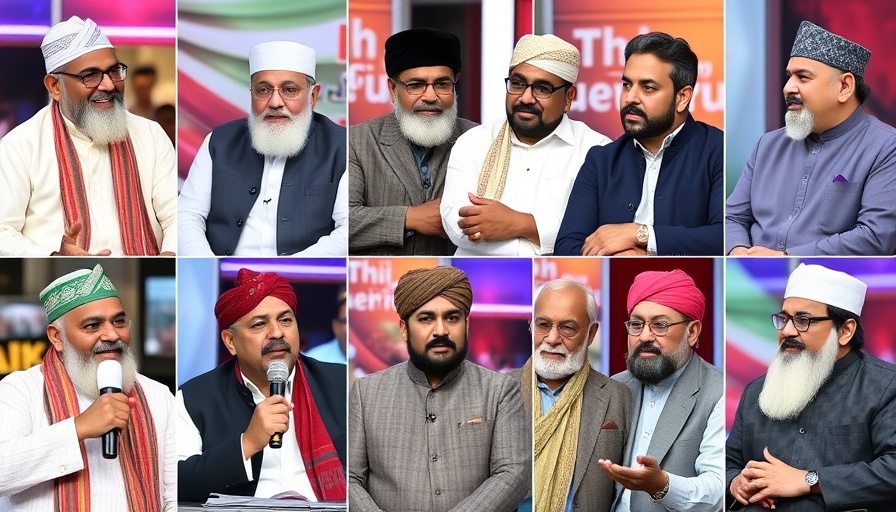
Favour Ofili's Shift: An Unfolding Crisis in Nigerian Athletics
Nigeria’s track star, Favour Ofili, has ignited waves of controversy with her decision to switch allegiance from Nigeria to Turkey, a revelation that has raised alarms about the future of athletics in the African nation. This shift represents much more than a simple transfer of national pride; it encapsulates a widespread frustration among Nigerian athletes with the country’s neglect of its sports institutions. Ofili’s predicament highlights systemic failures within Nigeria’s athletics leadership, further complicated by disastrous lapses in administrative processes that have prevented talented athletes from realizing their Olympic dreams.
In Favour Ofili Switches Allegiance To Turkey, the discussion dives into the frustrations facing Nigerian athletes, exploring key insights that sparked deeper analysis on our end.
Disappointment in the System: The Root of the Switch
The transition isn’t merely based on Ofili’s personal aspirations. Her withdrawal sparked from years of rigorous disappointment stemming from the Nigerian Athletics Federation's inability to meet essential international standards. Notably, in 2021, she found herself absent from the Tokyo Olympics due to the Federation's negligence, which ultimately cost several athletes their Olympic eligibility. According to major sports outlets, her decision unfolds against a backdrop where political discord and administrative failings have thwarted not just her aspirations but also those of many other promising athletes from Nigeria.
Turkey: An Attractive Destination for Athletes
As Turkey positions itself as a new athletic powerhouse, Favour Ofili’s move underscores a significant shift in global athletics dynamics. The Turkish government has reportedly initiated aggressive recruitment tactics, offering substantial financial incentives designed to attract elite talent from around the globe. In Ofili's case, there are allegations of a $500,000 signing bonus and a monthly allowance, which far exceeds what many Nigerian athletes have received in their careers. Although Ofili has stated that her move is not driven solely by financial gain, the monetary allure cannot be overlooked within the context of Nigeria’s disheartening treatment of its sports figures.
How the Loss of Prestigious Athletes Hints at a Diminishing Future
The trend of Nigerian athletes switching to other nations is becoming alarmingly frequent. Renowned athletes like Francis Oiquu and Glory Aloh have similarly found greener pastures abroad, indicating a systemic issue within Nigeria's athletics framework. This exodus not only threatens the competitive edge of Nigeria in international sporting events but also risks a long-term reputational blow, as they lose some of their most promising talents to countries willing to invest in their future.
A Bleak Outlook: Possible Implications for Nigeria
Given the state of Nigerian athletics, the situation raised by Ofili's transition has prompted discussions about the future of sports governance in the nation. It brings to light the ramifications of inadequate administrative support that results in a decline of Nigeria’s Olympic potential. For aspiring athletes keen on international competition, the message seems clear: finding support outside Nigeria may become a viable path for success, particularly if the current trend of mismanagement continues. Unless significant reforms are made within the Nigerian Athletics Federation, it will struggle to retain its athletes amidst an increasingly fierce competition for talent from nations like Turkey.
This exodus of top-tier talent raises a troubling question: If current athletes are consistently forced to pivot for better opportunities abroad, will Nigeria’s future elite athletes view their national affiliation as a hindrance rather than a platform for success?
Decisions and Reflections: The Need for Reform
In analyzing Ofili's flight, it becomes clear that the systemic failings of Nigeria’s sports administration must be confronted head-on. Stakeholders must prioritize reforms that nurture and promote homegrown talent. The urgency of this reform cannot be overstated, considering the direct correlation between administrative efficacy and athletes’ performances on the world stage. If athletes like Ofili feel unsupported and undervalued, the sports infrastructure in Nigeria will only continue to disintegrate.
As the narrative unfolds, one cannot help but ponder the future of Nigeria in international athletics. Will it remain a breeding ground for talent, or will athletes continue to flee for better opportunities abroad? Much depends on the leadership's response in the coming months.
 Add Row
Add Row  Add
Add 


 Add Row
Add Row  Add
Add 

Write A Comment